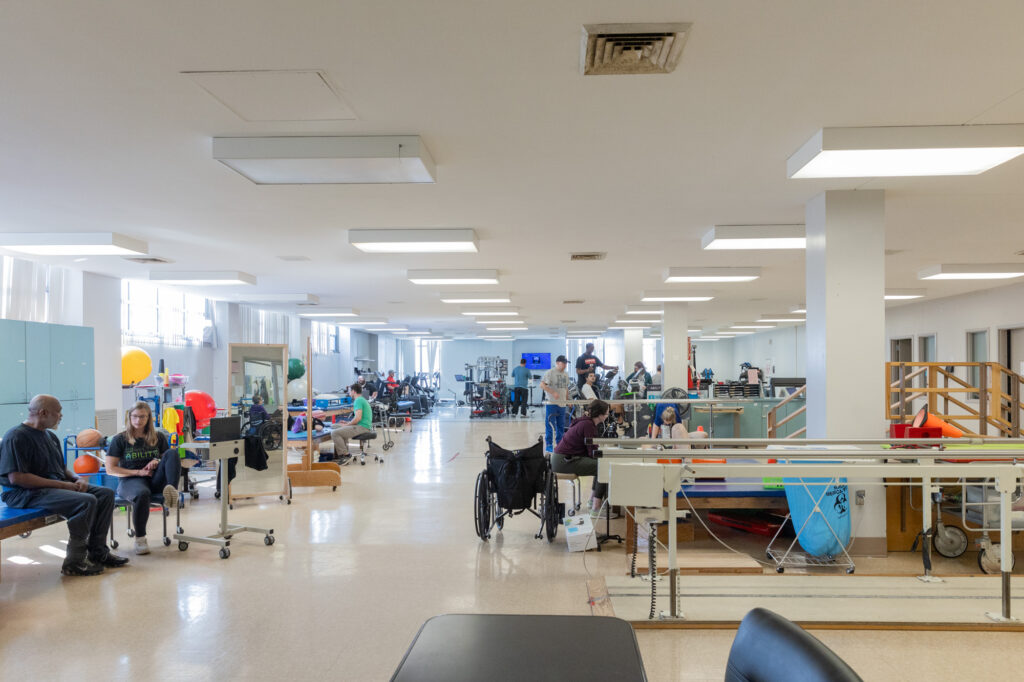
A brain tumor can be either cancerous or benign. It’s a growth of abnormal cells in the brain tissue or in the surrounding tissue, such as the nerves or the pituitary gland. While some brain tumors don’t cause any symptoms, others may result in strong headaches, blurred vision, balance conditions and seizures.
When someone is diagnosed with a medical condition, such as a brain tumor, one of the first questions that they’re likely to ask their doctor is, “Now what?” While recovering from any event can be a process, taking the first step is one of the most important milestones on the journey.
Recovery from a brain tumor can vary from person to person. It can depend on the size and severity of the tumor, as well as whether it’s treated or removed. We’ll talk about how a person with a brain tumor can start their recovery process. We’ll also discuss what type of treatments they can expect along the way.
Starting recovery from a brain tumor
Recovery after a brain tumor often refers to the aftermath of treatment for the tumor, whether that means having it surgically removed or undergoing radiotherapy. It’s also possible to be diagnosed with a tumor that doesn’t raise any immediate concerns or need for treatment; it just requires close observation in the future so that a doctor can note any potential changes that may cause issues.
Whether a patient undergoes treatment for their brain tumor or not, it’s important to focus on the recovery process to alleviate issues that stem from the tumor and improve their overall cognitive and motor functioning.
The first step in recovering from a brain tumor is for the individual to talk to their doctors to determine what treatments will be the safest and most effective for the symptoms, severity and location of the brain tumor. Through collaboration, they’ll figure out the best courses of action to start with depending on the patient’s particular needs, capabilities and goals.
The recovery process should include addressing the particular issues that stem from the cell growth or treatment, including:
- Weakness
- Mobility and function troubles
- Vision or hearing troubles
- Memory troubles
What recovery from a brain tumor may look like
A patient’s healthcare providers will guide them through the beginning of their recovery process from a brain tumor. If needed, the patient will be referred to specialists who can target particular concerns. The first treatments will likely include:
- Physical therapy — For most people recovering from a brain tumor, physical therapy will be a critical treatment option, as it targets the mobility and overall body functions that may be impacted by a tumor. A physical therapist can help improve the body’s mobility as much as possible through targeted exercises that connect the brain and muscles.
- Occupational therapy — Once a brain tumor impacts a person’s ability to carry out everyday motor functions, such as using a phone or putting on their shoes, then occupational therapy is required. The goal is to help improve the body’s mobility that has been impacted by the brain tumor so that they can go about their daily routines.
- Medications — As extreme fatigue and memory troubles are common following a brain tumor, it’s possible that the patient’s healthcare provider will prescribe medications to alleviate the problems on a daily basis. Medication management can play a large role in the recovery of a brain tumor.
- Education — It’s important for individuals to learn about how a brain tumor will affect them in the immediate future as well as down the line. As soon as a person is diagnosed with a brain tumor, the right educational resources will help them learn what they can do to reduce the risk of further complications from the abnormal cells and how to manage the symptoms in the future.
Ability KC can help with recovery after a brain tumor
A brain tumor is a serious medical condition that can lead to long-term impact if it’s not addressed immediately, whether that means observation of the growth and the resulting symptoms or undergoing surgery. Either way, it’s important to take the proper steps along the recovery journey to improve the patient’s overall cognitive and mobility.
At Ability KC, our rehabilitation services can help people who have been diagnosed with a brain tumor and want to begin their recovery in the safest and most effective ways possible. We’re here to help them improve their overall quality of life.
Ability KC is a designated Comprehensive Outpatient Rehabilitation Facility (CORF) with a Commission on Accreditation of Rehabilitation Facilities (CARF) accreditation. Contact our team today for more information or to schedule an initial appointment.